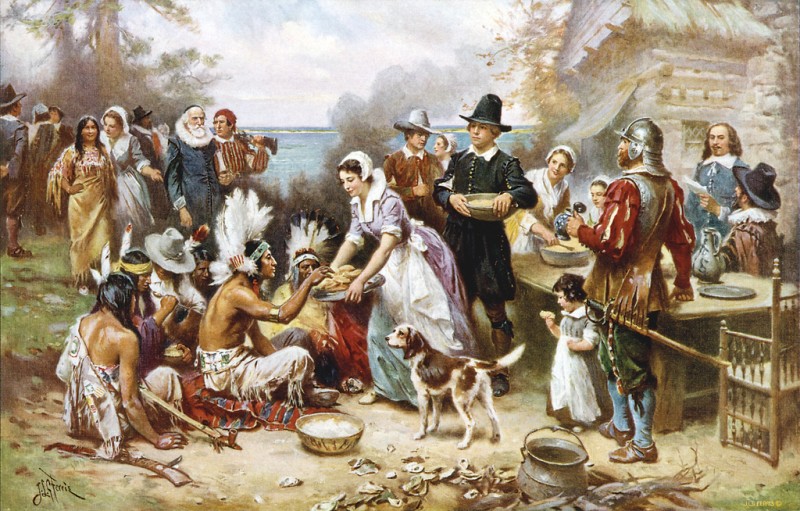Tours will allow natives to share their own historyBy John GoffOn Feb. 23, I caught an energetic Facebook post by Thomas Turner: “Native Plymouth Tours coming soon to Plymouth! … Tours of down town Plymouth [as seen] through the eyes of a Native American!”
Turner distributed the message while using as his Facebook logo a thought-provoking image of a 17th-century Wampanoag chief, possibly Massasoit, standing with a thunderbird breastpiece—gazing across all of Massachusetts towards the east, the direction of daily sunrise, significant for the Wampanoag, the “People of the First Light.”And:
Building upon foundations first laid in 2008 with the filming of “We Shall Remain,” and 2009 with the first Helme and Turner visit to Salem, 2010 promises to be an exceptionally bright year in the production of a “new” way to tell our region’s oldest history. That way involves the native narration of Native American history. As Americans, we all stand to benefit when our history is better integrated, and thousands of years of overlooked history is brought into better focus.
Let us congratulate Thomas and Timothy Turner for their founding of Native Plymouth Tours, do everything in our power to ensure that it succeeds, and envision a day when networks of similar tours can be conducted across all of “New England” bringing more overlooked history to light.Comment: I think the Plimouth Plantation already has Native-led tours. But I guess these tours go through the town and the surrounding area.
For more on
We Shall Remain, see
PBS Didn't Consult Wampanoag Tribes and
Reviews of After the Mayflower.



For more on the subject, see:
ReplyDeletehttp://www.boston.com/news/local/massachusetts/articles/2011/09/01/plymouth_brothers_offer_native_american_tours/
Native perspective
Seeing a 'missing link,' twin brothers offer tours focusing on overlooked aspects of history-rich Plymouth
"We figured this was needed," said Turner, a Cherokee who came to Plymouth as a young boy with his widowed mother and brother, and is now manager of the Wampanoag home site at Plimoth Plantation. "We saw the missing link. There's so much on Pilgrims, but not Natives, unless you go to the plantation. Here, we go to spots highlighting Native life and give a Native spin."
The tour received a publicity boost recently when Yankee Magazine gave it an Editor's Choice Award in its annual travel guide.
The tour encompasses what most others in Plymouth do not, Turner said: the story of the native Wampanoags who thrived here. There are roughly a dozen stops, including the statue of Massasoit, a legendary Wampanoag leader, looming atop Cole's Hill; the Nemasket Trail near Jenney Grist Mill, a former 15-mile-long Native link to what is now Middleborough; and the home site of Hobbamock, an English-speaking Wampanoag who was an ambassador and translator in the Pilgrim days and also, Turner and others said, possibly a spy for his fellow Natives.